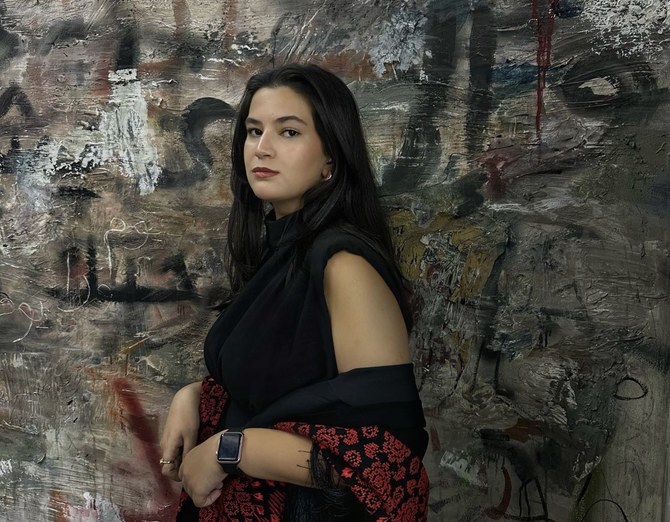Entrepreneurs
The Artistic Journey of Aisha Al Ahmadi: Language, Identity, and Self-Perception

Aisha Al Ahmadi is an emerging force in the UAE’s contemporary art scene, through which she investigates nuances within identity, truth, and post-colonialism. Born and raised in Abu Dhabi, Al Ahmadi uses research, artistic expression, and literature to call into question how external forces shape our perceptions of self and society. Her intellectually charged works in drawing, printmaking, painting, and sculpture afford us a deep and personalized window through which we can understand better the cultural constructs defining our world.
Aisha Al Ahmadi was born in 1997 and is rapidly becoming one of the most promising new voices in the UAE’s art landscape. Born and raised in Abu Dhabi, the themes of her practice are well embedded in research and circle around some of the most pivotal themes of our century: identity politics, post-colonialism, and the truths that define how we perceive the world. As an artist, a writer, and an aspiring curator, the creative path that Al Ahmadi has embarked upon reflects her commitment to leveraging art as a medium of personal and societal investigation. Having graduated with a B.F.A. in Visual Arts, along with a minor in Curatorial Practices from Zayed University in Abu Dhabi in May 2020, Al Ahmadi’s academic background has shaped her approach a great deal. Her studies have gotten her to question how forces outside ourselves-politics, history, culture-shape our self-view and ways of engaging with the world. Currently, she is pursuing her M.A. Further deepening this intellectual inquiry into such themes was pursued in History of Art and Museum Studies at Sorbonne University in Abu Dhabi.
At the heart of Al Ahmadi’s work is an investigation into identity politics; more precisely, it zooms in on post-colonialism. Growing up in the United Arab Emirates, a country seemingly racing toward modernity with varied influences from cultures, places Al Ahmadi in a very privileged position-to examine how these dynamics affect identity. Through her drawing, printmaking, painting, and sculpture, she researches how the legacies of colonialism have impacted the perceptions of the self and relationships to cultural histories. The research-based approach enables her to go beyond the personal experiences into the higher conceptual levels where the notion of identity is crafted within the structures of society. In this direction, she presents a robust critique of the persistence of history and power relations in contemporary society.
She moved into a more architectural and conceptual voice that considered the constructed nature of language and its part in forming perception. This transition has allowed her to engage in a more in-depth way with her intellectual interests while not losing an emotional resonance in her works. Language lies at the core of Al Ahmadi’s art. Her works underline the notion of how language builds up reality and undertakes to reveal the power of words in both defining and constraining our understanding of the world. This plays out in her drawing and painting, which allow text and visual imagery to converge in lush, multi-dimensional works that beg viewers to reconsider assumptions about identity, truth, and perception.
One of the biggest overarching themes present within each of these works by Al Ahmadi is that of vulnerability, most especially in relation to social conditioning. Her works often depict figures constrained in spaces, literally and metaphorically, reflecting the societal restraints on individuals-those of identity politics. The constricted domestic space underlines her characters’ vulnerability and brittleness and poignantly reflects a comment on these social norms putting a squeeze on people’s ability to self-express themselves as individuals. In the sculptural works of Al Ahmadi, she creates characters that personify different attributes of herself. The characters often come across as being held back, or hindered, and reflect the turmoil many are going through amidst a woefully directionless world of identity. The personal thus becomes universal in investigation, and the viewer is allowed an opportunity for reflection on his or her own experience regarding social conditioning and vulnerability.
Aisha Al Ahmadi’s talent and intellectual rigor have not gone unrecognized. In 2019, she was awarded the prestigious Cultural Foundation Art Residency-a sure sign of her increasing influence within UAE art circles. She has also taken part in several exhibitions, including most notably the “Sense of Women” art exhibition driven by Mia Collection. This exhibition revealed to the world her perspective on gender, the play of power, and identity to further consolidate her as one of the leading figures in the region’s contemporary art world.
